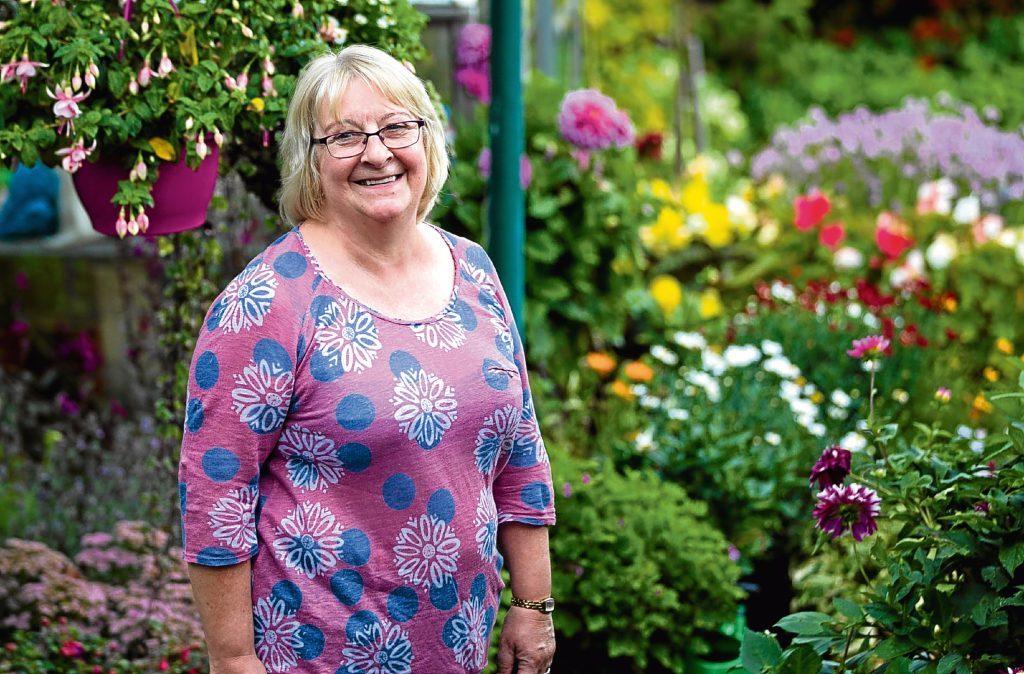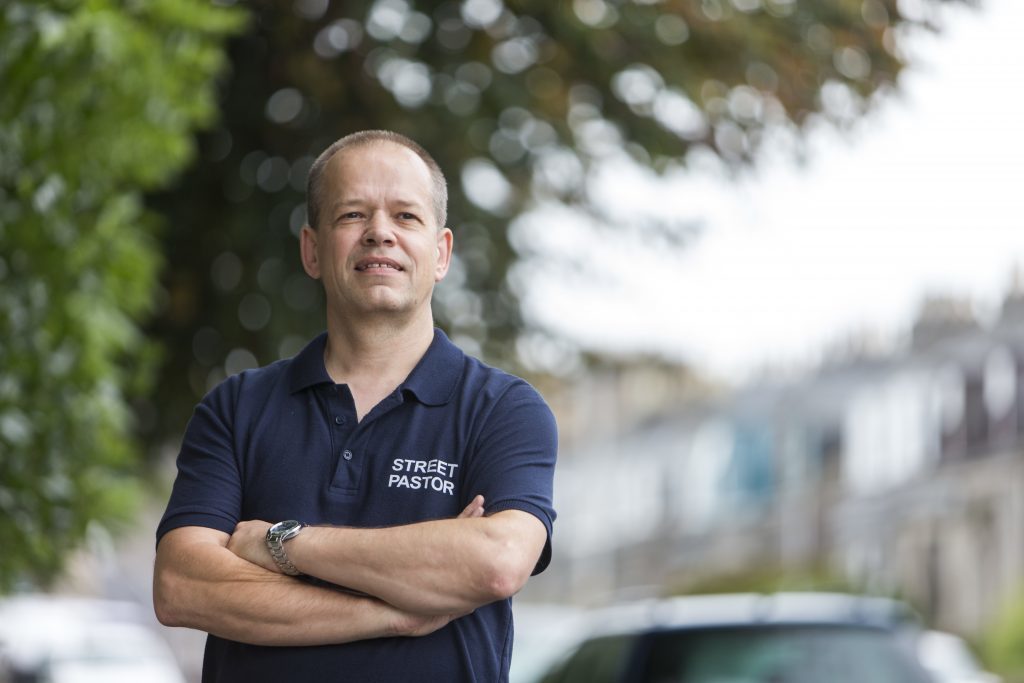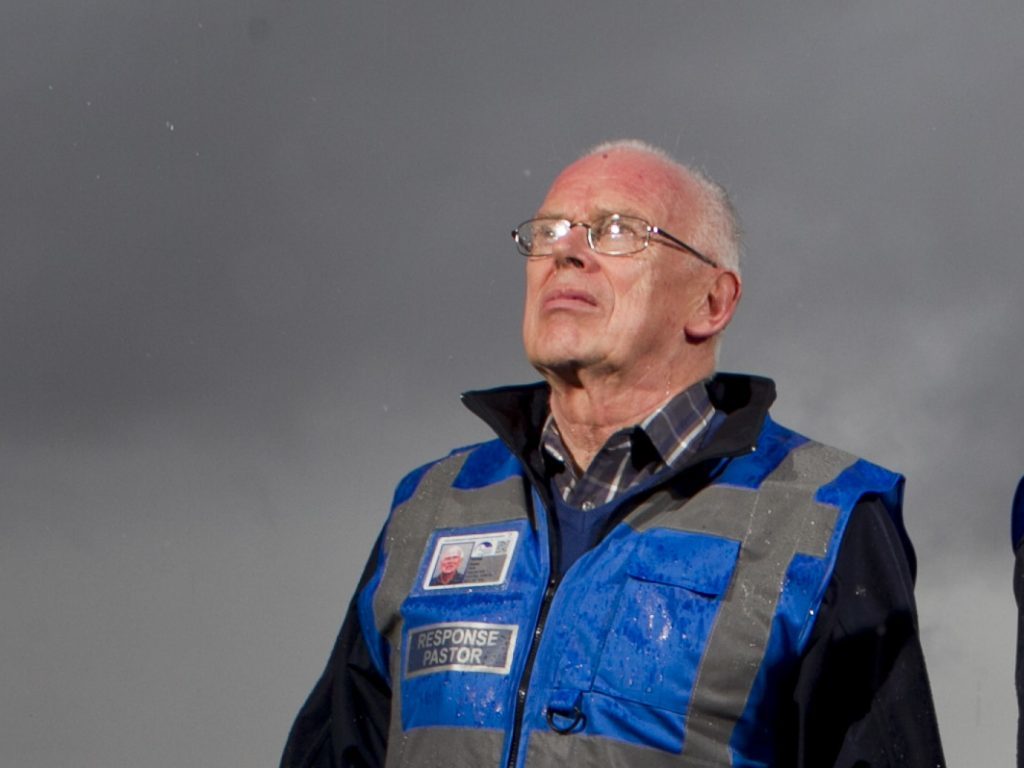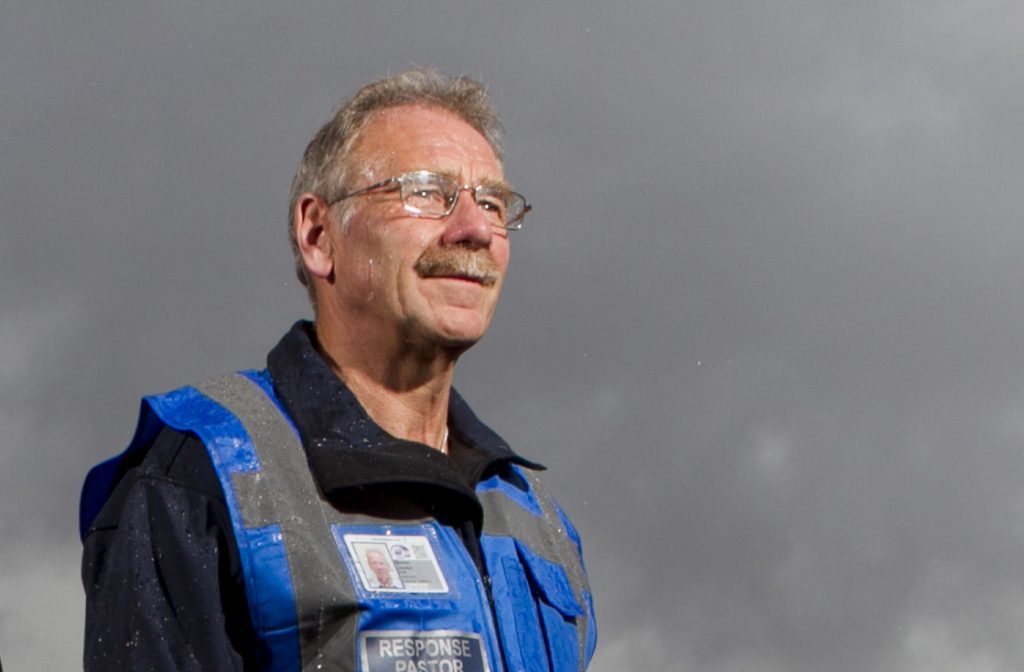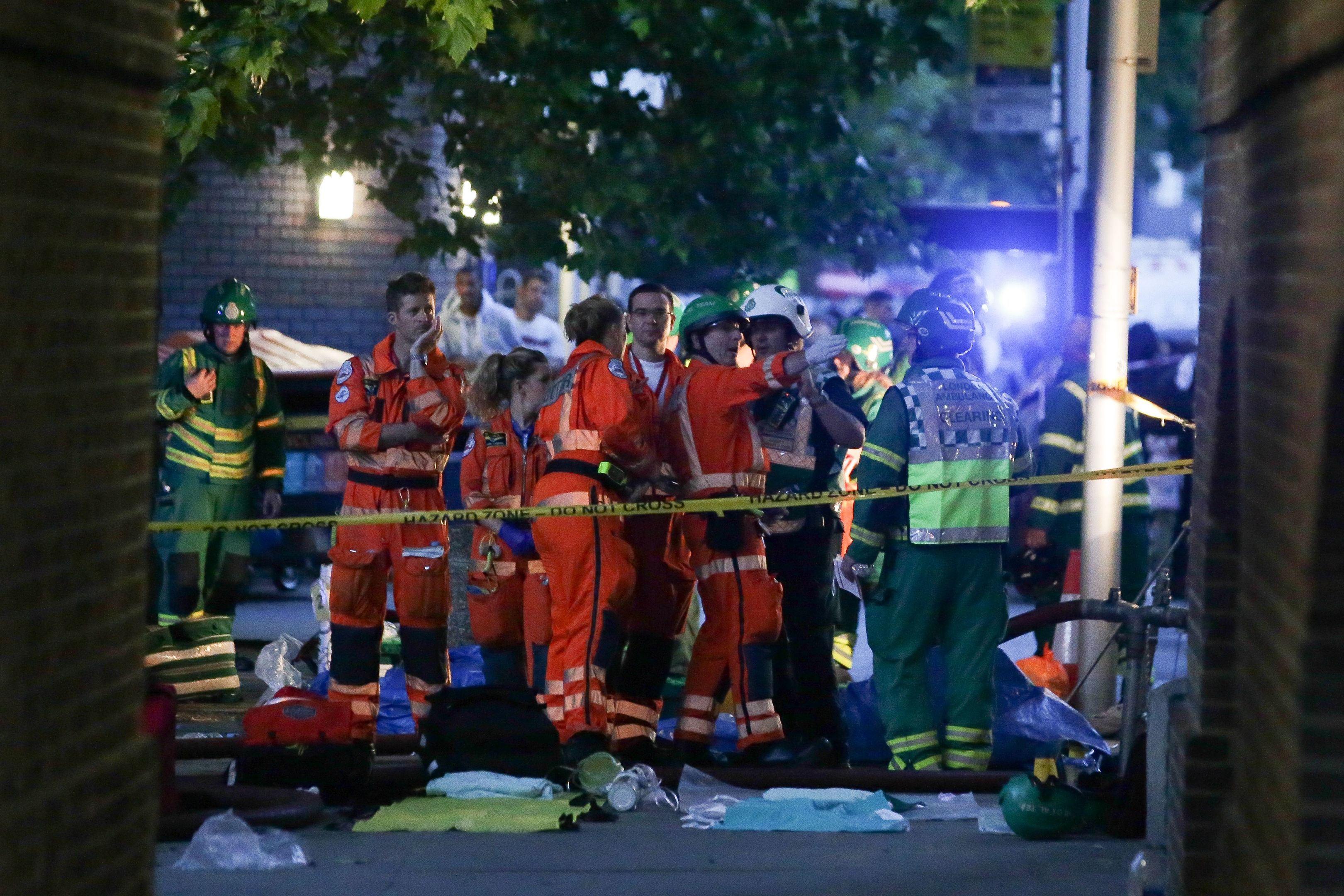
IN England, they have provided vital support after incidents like the Manchester Arena bombing and the Grenfell Tower tragedy.
Now Scotland has 44 Response Pastors on call 24/7.
They are led by Sandy Scrimgeour, of the Ascension Trust, who also oversees Scotland’s Street Pastors. He said: “We will be on the ground offering love, compassion, and understanding to victims and relatives.”
Here, RUSSELL BLACKSTOCK speaks to four volunteers to discover why they joined the crisis team.
LINDA Farrer lived with the black dog of depression and anxiety for decades. The 63-year-old former biomedical scientist from Edinburgh was so low she tried to take her life three times. Since recovering six years ago, she has dedicated her time to helping others.
‘Best comfort is just to be there for them’
I took early retirement five years ago specifically to do voluntary work. I felt I had to do it.
Less than a week later I started working at a food bank. One of the chaps there was a Street Pastor and I decided to join him.
I love spending time on the streets, just talking to the homeless, as they are almost invisible to the rest of us.
I particularly enjoy helping those who have over-indulged in alcohol or drugs. We have all been there at some point and I feel drawn to help.
I spent time in a psychiatric hospital myself. I tried to commit suicide by overdose three times and my husband and sisters were hugely supportive.
I had been suffering from anxiety and depression since I was a teenager and had a bad episode about six years ago but fortunately I came through the other side.
I feel I was given that experience in order to understand and help others, and to urge them not to give up.
People are particularly vulnerable when they are faced with a sudden personal crisis and sometimes they just need someone to talk to.
Sometimes the most effective comfort you can offer is just to be there for them.
I’m an organiser. I help get the troops on the ground to the right place at the right time.
When the bomb went off at Parsons Green in London recently I wondered if I would be called on.
I have never been to a disaster scene before and I pray we will rarely be used.
‘We give care, compassion’
KEITH Simpson, 54, is a broadcast engineer with the BBC in Aberdeen. He began volunteering to help those less fortunate when he realised how vulnerable his own daughters were when they were teenagers.
Having kids helped me see things through their eyes. I’m glad my girls never had any problems but there are a lot of at-risk youngsters out there at night and I wanted to assist.
Aberdeen was the first city in Scotland to get Street Pastors and I knew a couple of people who did it.
Three years ago I joined them for a night and was hooked. It was a very positive experience for me.
Cities can be pretty violent places at night but I don’t feel in danger because I am wearing a very recognisable uniform and this seems to calm people down.
As a Response Pastor I expect to be called up to help anywhere in Scotland or in the North of England.
I was watching the bomb incident unfolding in London recently and was wondering how I would handle being sent into a situation like that.
It is not my job to go into risky situations but to offer care and compassion to people on the ground who might be in a state of shock, bewilderment or anger.
‘I’m simply there to lend an ear and to help’
RETIRED parish minister Sandy Gunn, 74, found his calling to as a Street Pastor, then a Response Pastor, after becoming saddened by a spate of suicides in his home city of Perth.
As a minister I had been used to dealing with the sadness of society.
But when five people went into the river about 12 years ago, that was the trigger for me to find a way to volunteer to help vulnerable people.
I am simply there to lend an ear and to help and care.
Often after a tragedy like a fire or a car accident it can leave survivors and witnesses traumatised.
If someone is there to listen it really helps, and often we arrive when people are at their wits’ end. They may have lost the medicine they need or need a child to be picked up from somewhere, or have important appointments that they have missed and they need to let someone know what has happened.
In these situations it is good to work as a team.
I have not been involved at the scene of a disaster or a terrorist attack yet but if you are there on the ground it helps people feel valued and can make a difference.
DAD-of-three Gordon Loudon, 63, is a part-time van driver who delivers eggs by day – and dispenses hope and understanding to strangers at night on the streets of Perth.
I have been a Street Pastor for three years and I see becoming a Response Pastor as being an extension to this.
I have watched recent disasters such as the Grenfell fire and the Manchester Arena bombing unfold and it seems like a natural progression to help out at scenes such as those.
The Grenfell fire happened on the same day as my first training course as a Response Pastor and it really rammed it home to me that doing this will be worthwhile.
I have relatives who live in Lockerbie and I remember the devastation and distress when the plane disaster happened there in 1988.
I recognised back then what a tragic event like that can do to people.
Although I have not been involved in a horrific situation like that, I am now ready to go and help at a disaster scene.
I am a keen hockey player who has represented Scotland and when I am faced with a difficult or challenging situation, I always remember what my father told me many years ago: ‘Keep the heid in a big game, son’.
Fortunately, I have always been pretty good at that.

Enjoy the convenience of having The Sunday Post delivered as a digital ePaper straight to your smartphone, tablet or computer.
Subscribe for only £5.49 a month and enjoy all the benefits of the printed paper as a digital replica.
Subscribe